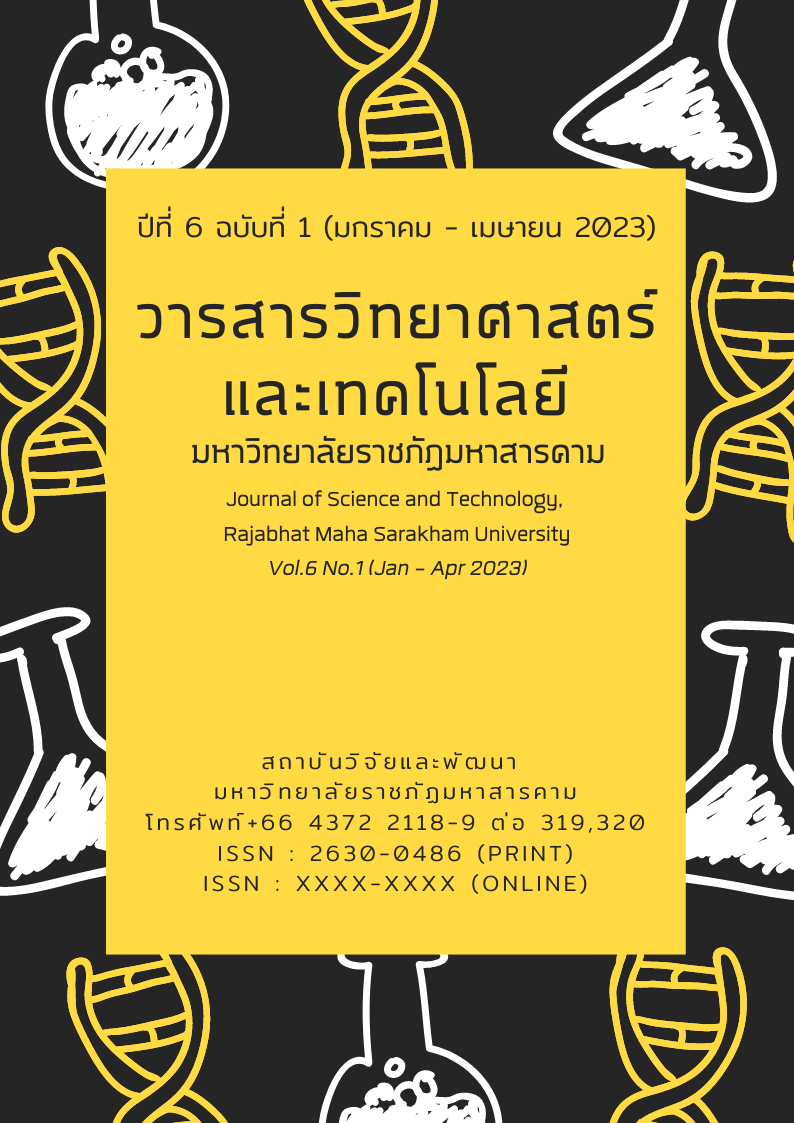A simple Secret Key Splitting and Sharing of Decentralized Multiple Agent Key Recovery System
Keywords:
Splitting and Sharing, Secret key, Key recovery, Agent, KRFAbstract
Cryptography technology will help to strengthen security and privacy of various network activities. This technology uses methods to encrypt and decrypt data using a secret key (Ks). When the recipient is unable to use the key to decrypt the data or if the decryption key is lost, the secret key recovery process will be required, by using Key Recovery Field (KRF) to be used to decrypt the data.
The objective of this research is to present the development and improvement of a new SSDM-KRS algorithm model for higher stability. The design focuses on the secrecy of the Ks and solves the problem of revealing the key, when an agent collusion occurs in the key recovery group. As a result, information is safe, reliable, and user privacy. Finally, it supports law enforcement needs and is based on the Public Key Infrastructure (PKI). The KRF is slightly larger in size and requires less time to create KRF than previously proposed DM-KRS.
References
Al-Odat, Z. Abbas, A. & Khan, S. (2019). Randomness Analyses of the Secure Hash Algorithms, SHA-1, SHA-2 and Modified SHA. In 2019 International Conference on Frontiers of Information Technology (FIT) (pp. 316–3165). Pakistan: Islamabad.
Al-Salqan, Y. (1997). Cryptographic Key Recovery. In The Sixth IEEE Computer Society Workshop on Future Trends of Distributed Computing Systems (pp. 34-37). Tunisia: Tunis.
Denning, D. & Branstad, D. (1997). A Taxonomy for Key Recovery Encryption Systems. Internet besieged: countering cyberspace scofflaws, pp. 357-371. ACM Press/Addison-Wesley Publishing Co.
Guo, Z., Okuyama. T. and Finley, M.R. (2005). A New Trust Model for PKI Interoperability. In The International Conference on Autonomic and Autonomous Systems and International Conference on Networking and Services. Papeete, Tahiti.
Kanyamee, K. & Sathitwiriyawong, C. (2014). High-Availability Decentralized Cryptographic Multi-Agent Key Recovery. The International Arab Journal of Information Technology (IAJIT), 11(1), 52-58.
Kanyamee, K. & Sathitwiriyawong, C. (2009). High-Availability Decentralized Multi-Agent Key Recovery System. In The Eighth IEEE/ACIS International Conference Computer and Information Science (pp. 290-294). China: Shanghai.
Kim, T. Kim, W. Seo, D. & Lee, I. (2020). A Secure Encapsulation Schemes Based on Key Recovery System. In Silicon Valley Cybersecurity Conference (pp. 25–37). USA: California.
Lee, Y. & Laih, C. (1997). On the Key Recovery of the Key Escrow System. In The 13th Annual Computer Security Applications Conference (pp. 216-220). USA: San Diego, CA.
Lim, S. Kang, S. & Sohn, J. (2003). Modeling of Multiple Agent Based Cryptographic Key Recovery Protocol. In The 19th Annual Computer Security Applications Conference (pp. 119-128). USA: Las Vegas, NV.
Lim, S. Hani, H. Kim, M. & Kim, T. (2001). In Design of Key Recovery System Using Multiple Agent Technology for Electronic Commerce. In The Industrial Electronics (pp. 1351-1356). Korea (South): Pusan.
Sun, W. & Harayama, M. (2011). A Proposal of Key Recovery Mechanism for Personal Decryptographic Keys. In The International Conference on Internet Technology and Applications (p. 1-6). China: Wuhan.
Slagell, A. Bonilla, R. & Yurcik, W. (2006). A survey of PKI components and scalability issues. In The 25th IEEE International Performance Computing and Communications Conference (pp. 473-483). USA: Phoenix, Arizona.
Stallings, W. (2011). Cryptography and Network Security. (5th ed). Prentice Hall.
Wang, H. Zhao, Y. Yu, X. Nag, A. Ma, Z. Wang, J. Yan, L. & Zhang, J. (2019). Resilient Quantum Key Distribution (QKD)-Integrated Optical Networks with Secret-Key Recovery Strategy. IEEE Access.
Zheng, X., & Jin, J. (2012). Research for the Application and Safety of MD5 Algorithm in Password Authentication. In The 9th International Conference on Fuzzy Systems and Knowledge Discovery (pp. 2216–19). Chongqing, China



